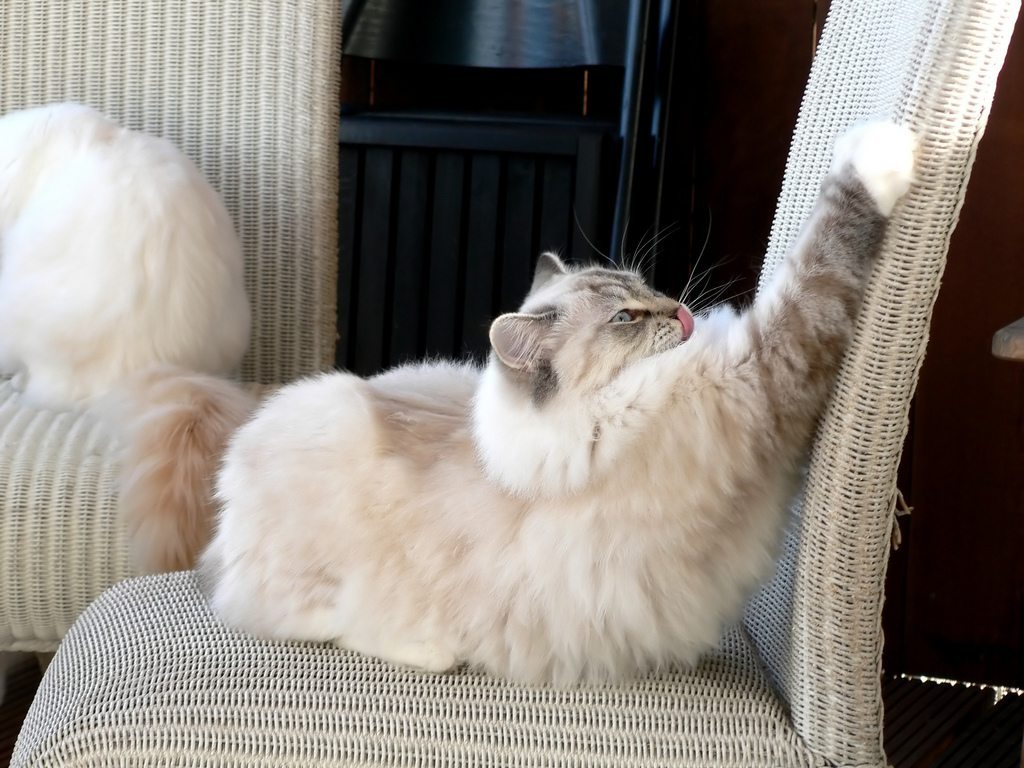

Dogs on the furniture, or not? Cat on the chair? Maybe. Cat on the dinner table? NO! Every pet and every pet owner is different, just as some people are more laid back and don’t mind cat hair in the sink, and some are more fastidious. So the issue of where to allow pets to perch is an individual one.
Mi Casa es su Casa, but Stay off the Couch!
Everyone has boundaries. There may be a particular piece of furniture you do not want pets on for whatever reason. Cats need to scratch, so if your cat is a strictly indoor cat, you should provide a scratching post for him. Anytime you notice him scratching something he shouldn’t, gently move him to the scratching post. It might take awhile, but he will get the idea. In the meantime, double sided tape on the place he likes to scratch will keep him off. He will not like the feel of the tape, so he will go elsewhere. Indoor/Outdoor cats will have opportunity to scratch on trees, etc.
Another issue is cats on tables and counters. The best way to train your cat to stay off things is to start early in kitten-hood to show her the joys of a scratching post. It is easiest by far to start with no bad habits and build only good ones. Adopting an adult cat means also adopting whatever habits are already ingrained – not as easy, but it can be done.
One way to discourage a cat is to apply double-sided tape to your furniture. Cats don’t like the feeling of sticky things on their paws and will go elsewhere. To keep cats off tables or countertops, offer an alternative, such as a cat tree with places to perch. If, after you provide alternatives to your countertops, the problem is not solved, try some tactics to convince her that the countertops are off limits. Try placing cookie sheets at the edge of the counter so that when kitty jumps up, the pans slide. She won’t be hurt, but the noise will deter her from trying again.
Gone to the Dogs
Is your favorite chair being taken over by man’s best friend? Here is how to take back your turf. As with cats, it is easier to start with a puppy and only allow access where he can go. But training an older dog is not impossible and dogs learn faster than cats, so they are ahead of the game already. Should you adopt an adult dog, set the ground rules and establish a routine from day one. If he is not allowed on the couch, say “no” or “down” in the beginning, accompanied by a gesture indicating he should jump to the floor.
Reward him with a treat to show him positive reinforcement. Make sure to have doggie beds available in different rooms, such as the bedroom if he is not allowed on your bed. Another deterrent is to place some mats designed for office chairs upside down where you don’t want your dog to lie. The little nipples on the bottom that are designed to grip the carpet will make it a not-so-cozy spot.
Consistency
The one thing you never want to do is react with anger, scolding or spankings when you are training. Going over the same lesson over and over can be frustrating, but if you react in anger, you are teaching your pet to fear you, not to respect your rules. If you are consistent and patient with your training, you should accomplish your goals before you know it.

